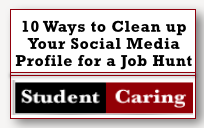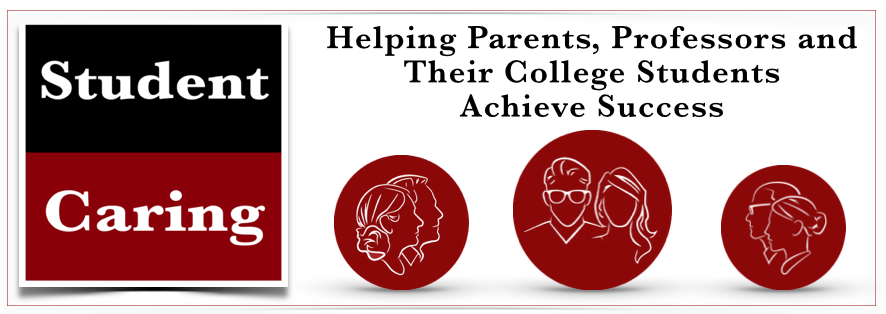From college admissions boards to employers at major corporations, the concept of the social media background check has gained prevalence in the modern world of applicant screening. While the Equal Employment Opportunity Commission (EEOC) isn’t so sure about the ethicality of social media background checks—due to their penchant for revealing information such as age, race, gender, or other discriminatory factors that may intentionally or unintentionally lead to biased hiring decisions—they have still become commonplace for many companies and organizations throughout the United States.
In other words, if you are hunting for a new job, chances are your prospective employers are going to investigate your social media profiles. Where traditional background checks are generally instituted to look into the criminal histories of applicants, social media background checks investigate a different set of criteria. And while unsavory social findings may not seem like they would have the same stakes as a major criminal conviction for employers, they can still have the same ultimate result: losing you a chance at the job you want.
Luckily, your social media profiles are easier to clean up than any criminal history you may have. By viewing your Facebook profile, Twitter feed, LinkedIn page, or Flickr photostream as extensions of your resume and your job application, you can build them into resources that posit you as the perfect employee rather than gambits that shatter a potential employer’s positive image of you. In order to do this, you merely need to know what employers are looking for.
1. Watch Your Statuses and Comments: When employers browse your Facebook or Twitter page, they look at the kinds of comments and statuses you have made in order to get a better sense of how you behave online. The theory is that, while you try to present yourself in a very favorable light during job interviews, social media behavior can give employers an idea of who you really are outside of work. Profanity, complaints about former employers, or comments with a sexist, racist, or otherwise discriminatory connotation are all social media red flags that may cause employers to reconsider you as a competitive applicant.
2. Look Through Your Photos: Photographic proof of lewd or reckless behavior can be a huge turn off for employers when it comes to assessing their applicants. Facebook photos depicting drug use, excessive alcohol consumption, full or partial nudity, vandalism, or any other destructive or illegal activities will cast you as a reckless partier rather than as a seasoned professional. Questionable photographs on social media sites are an especially large problem for recent college grads looking to break into the job market. Late nights and bar crawls may be the norm at many universities, but they are absolutely not what employers want to see their applicants doing.
3. Trim Down Your Groups, Likes, or Apps: Are you a passionate Farmville player? Do you list “Alcohol” as one of your interests? These are just a few of the behaviors that employers might not want to see from applicants. Social media games aren’t necessarily a turn off for employers, but someone who spends their days playing Farmville or Candy Crush on Facebook doesn’t always appear to be the most professional choice for a job.
4. Consider Amending Your Friends List: Most employers won’t care much if you have a couple thousand friends on Facebook: it’s called “social” media, after all. However, it’s never a bad idea to go through your friends list and trim it down to only the people you know well and communicate with frequently. Particularly, if there’s a friend who you think could make you look bad—either by posting obnoxious things on your wall or tagging you in old, inappropriate photos—then don’t be afraid to kick them to the virtual curb.
5. Check Your Blogs: Whether you’ve blogged on Facebook or on a separate website, read through your posts to see how they make you come across. Some blog writing can be professional, thoughtful, and perhaps even a boon to your employment chances—especially if you are hunting down web content writing positions. Other blog writing can be petty, profane, and immature. If your blogs fall into the latter category, direct your mouse toward the “Delete” button.
6. Look at Your YouTube Account: Many people forget about YouTube when cleaning up their online presence, but if you’ve been a frequent video poster at any point in your online tenure, it’s worth a look. In most cases, YouTube videos are harmless. However, if you’ve ever uploaded anything that that could be considered offensive or anything that infringes a copyright, take it down just to be safe.
7. Restrict Tagging: One of the reasons that Facebook in particular represents such a threat to a job hunter’s chances of getting hired is that it is thoroughly unpredictable. Even once you’ve cleaned your profile, you never know when a friend is going to tag you in a comment or photo that casts you in a questionable light. By adjusting your privacy settings so that you can review all tags before they show up on your profile, you can have better control of the story your Facebook profile is telling the world.
8. Set Your Profile to Private: If you absolutely don’t want employers looking at your social media profiles, then get to work making everything as private as possible. Twitter is inherently a public social networking site, and LinkedIn is a place where you should want to be found by potential employers. However, Facebook makes it possible for users to set safeguards for privacy. That way, certain profile elements (i.e., photographs, statuses, etc.) can be kept invisible to non-friends, and since most employers won’t be friends with you on Facebook when considering your application, privacy settings can be a good way to keep your private life private from those prying eyes.
9. Set Your Albums to Private: Alternatively, if you don’t want to entirely shut employers out of your social media world, you can tailor your privacy settings to allow non-friends access to only specific parts of your profile. In other words, you can show off your statuses and info, but restrict access to your photo albums. Sure, it’s only half privacy, but it generally serves as a good compromise if most of your unflattering social media actions are contained to your photos.
Of course, if you have photos that you absolutely don’t want employers to see, it’s best to take them down. You might even consider adopting a “no photos” policy on Facebook, and resort to storing your photo albums on another cloud-based service that sees less traffic from potential employers.
10. Match Your LinkedIn Profile to Your Resume…and Vice Versa: Most social media cleaning understandably applies to Facebook. It’s the most used and most well-known social media network out there, and as a result, it gets the most attention from employers. However, you should also take a moment to ensure that your LinkedIn profile is up-to-date and accurate in relation to your resume. If you are presenting different information between the two resources, that will raise a red flag for employers. Synchronize the information, but also work to make LinkedIn a place for employers to learn more about your work history, not just a profile parroting what your resume has already presented. Your prospective employers will appreciate the extra insight, and will have a positive opinion of your social media personality as a result.
Michael Klazema has been developing products for pre-employment screening and improving online customer experiences in the background screening industry since 2009. He is the lead author and editor for a background check blog and community. He lives in Dallas, TX with his family and enjoys the rich culinary histories of various old and new world countries.
Our book:The Caring Professor: A Guide to Effective, Rewarding, and Rigorous Teaching, was written with feedback from many educators and students, which was our plan all along. We began by outlining our thoughts on a series of topics, then we recorded them to share with the world. From the feedback we received, we were informed about the needs of the student caring community. We need your feedback so we may continue to fulfill our mission statement and help students, the world over.
Thank you!
Daniel & David
###



0 Comments